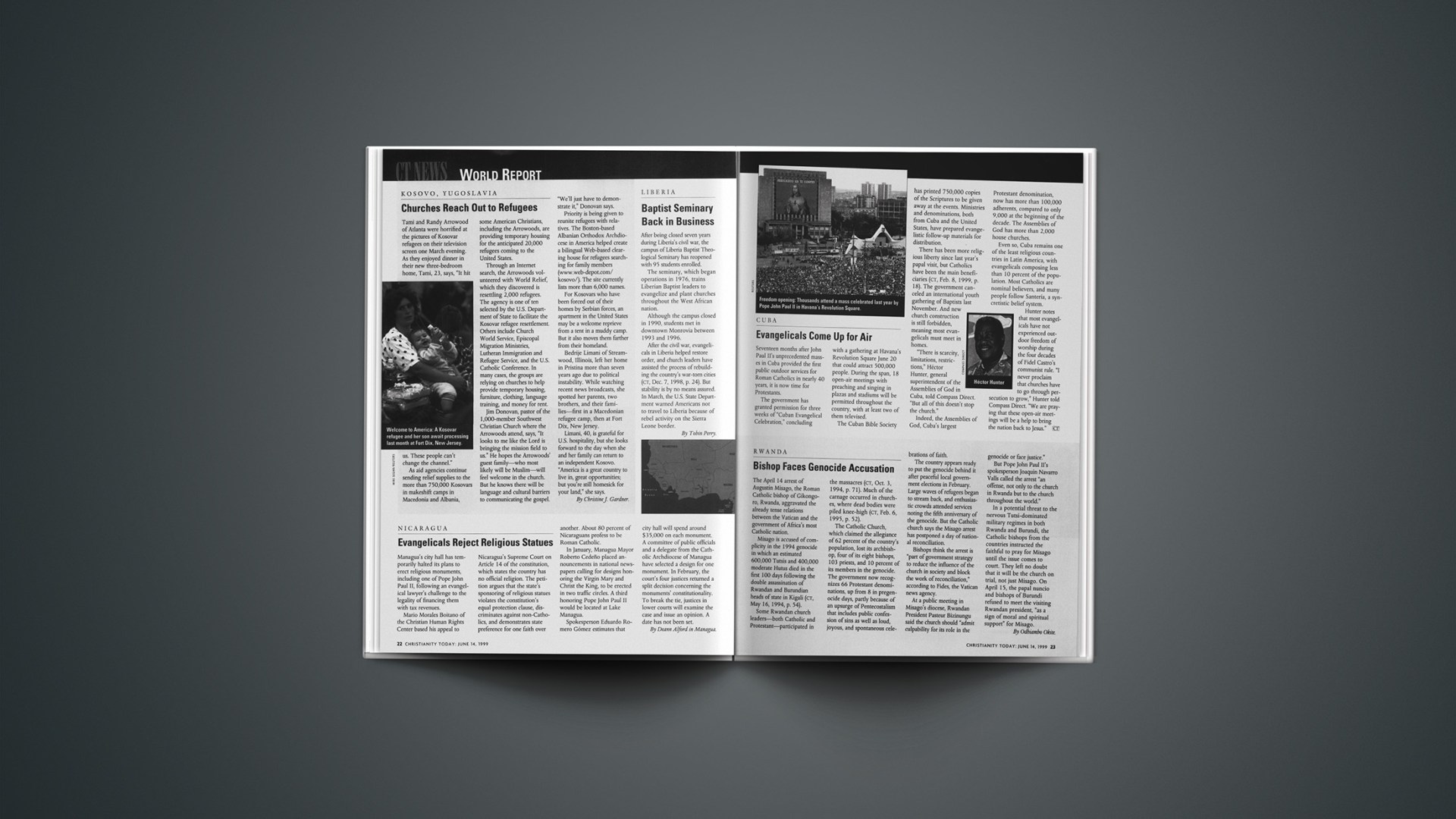The April 14 arrest of Augustin Misago, the Roman Catholic bishop of Gikongoro, Rwanda, aggravated the already tense relations between the Vatican and the government of Africa’s most Catholic nation.
Misago is accused of complicity in the 1994 genocide in which an estimated 600,000 Tutsis and 400,000 moderate Hutus died in the first 100 days following the double assassination of Rwandan and Burundian heads of state in Kigali (CT, May 16, 1994, p. 54).
Some Rwandan church leaders—both Catholic and Protestant—participated in the massacres (CT, Oct. 3, 1994, p. 71, AOL only). Much of the carnage occurred in churches, where dead bodies were piled knee-high (CT, Feb. 6, 1995, p. 52, AOL only).
The Catholic Church, which claimed the allegiance of 62 percent of the country’s population, lost its archbishop, four of its eight bishops, 103 priests, and 10 percent of its members in the genocide. The government now recognizes 66 Protestant denominations, up from 8 in pre-genocide days, partly because of an upsurge of Pentecostalism that includes public confession of sins as well as loud, joyous, and spontaneous celebrations of faith.
The country appears ready to put the genocide behind it after peaceful local government elections in February. Large waves of refugees began to stream back, and enthusiastic crowds attended services noting the fifth anniversary of the genocide. But the Catholic church says the Misago arrest has postponed a day of national reconciliation.
Bishops think the arrest is “part of government strategy to reduce the influence of the church in society and block the work of reconciliation,” according to Fides, the Vatican news agency.
At a public meeting in Misago’s diocese, Rwandan President Pasteur Bizinungu said the church should “admit culpability for its role in the genocide or face justice.”
But Pope John Paul II’s spokesperson Joaquin Navarro Valls called the arrest “an offense, not only to the church in Rwanda but to the church throughout the world.”
In a potential threat to the nervous Tutsi-dominated military regimes in both Rwanda and Burundi, the Catholic bishops from the countries instructed the faithful to pray for Misago until the issue comes to court. They left no doubt that it will be the church on trial, not just Misago. On April 15, the papal nuncio and bishops of Burundi refused to meet the visiting Rwandan president, “as a sign of moral and spiritual support” for Misago.
Copyright © 1999 Christianity Today. Click for reprint information.










